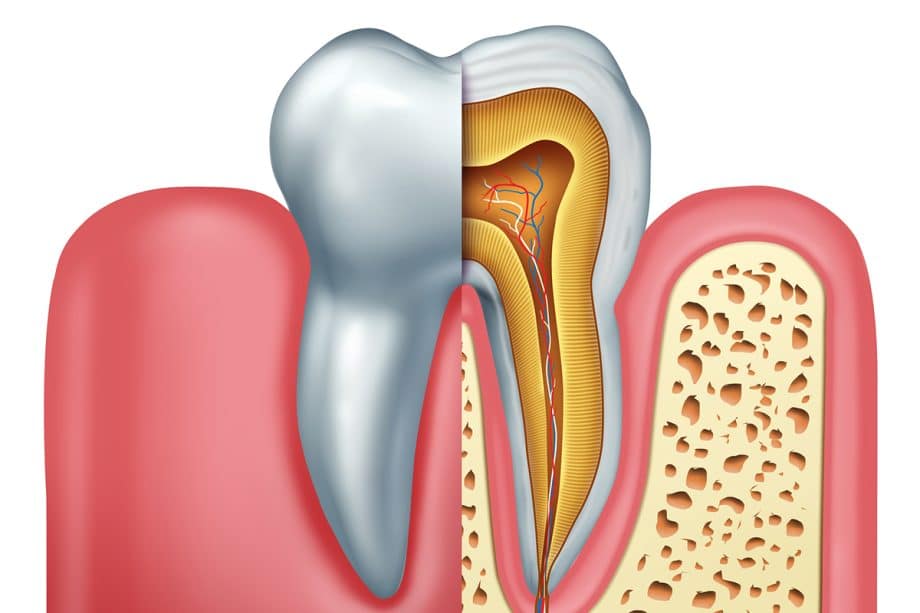There are a few reasons that your dentist may refer you to an endodontist for a root canal. If the decay in your tooth has reached the point where the nerve is inflamed, you will need root canal therapy. If this inflammation progresses to the point where the nerve/pulp becomes necrotic and infected, you would also need a root canal. However, before you even see the dentist, there are warning signs that may indicate that you will need a root canal. Read on for signs and symptoms of a problem in the pulp of your tooth that will require root canal therapy, also known as endodontic treatment.
Signs You May Need a Root Canal
Some dental problems may have similar symptoms. For example, a mild toothache may be a sign that you need a cavity filled. It can also be a symptom of more severe decay or infection in a tooth. Likewise, gum swelling may be a sign that you need a root canal, but it also may be a sign of gum disease. If you experience any swelling, pain, new onset of tooth sensitivity, or any other unusual aches in your mouth, schedule a dental exam as soon as possible.
Other symptoms that can indicate the need for root canal therapy include the following.
Severe Pain
Sharp, lingering pain is a telltale sign of an inflamed pulp/nerve. Our teeth have some natural sensitivity to cold, but lingering and throbbing pain anytime you have a sip of cold water can be a sign of inflammation of your pulp. If this throbbing pain occurs spontaneously without any stimulus, that is another sign of severe inflammation of your nerve indicating root canal therapy. Pressure or swelling on your face may also be a sign of an infection in a tooth that will require endodontic treatment.
Bumps on Your Gums
A new bump that develops on your gum is likely a sign of an infected tooth. Regular cavities won’t cause bumps on your gum. These bumps can sometimes be completely painless but indicate that an infection has developed at the ends of your roots and has started to drain through your gum tissue.
Cracked Tooth
If you have a visible crack on a tooth associated with severe pain, it can sometimes need a root canal to save the tooth. A crack in the tooth often leads to inflammation or infection in the tooth, which can be treated with a root canal and a crown. After completion of the endodontic treatment, a crown with your general dentist is crucial in order to prevent further propagation of the crack.
Discolored Tooth
If you notice that a tooth has suddenly begun to turn gray or black, this can be a sign that the nerve in the tooth is no longer functional. This will sometimes require a root canal in order to save the tooth and potentially internal bleaching to address the discoloration.
What Happens During a Root Canal?
If you have been referred to an endodontist for root canal therapy, don’t panic. Today, thanks to technology and advanced surgical techniques, getting a root canal is virtually painless. The area of your mouth surrounding the infected tooth will be completely numbed, so you shouldn’t feel a thing.
Your endodontist will then use something called a rubber dam which isolates the tooth and prevents saliva from entering the pulp space. The doctor will use a microscope to see your tooth and canal space at high magnification. Your endodontist will then make a small opening in the top of your tooth to access the nerve. The infected or inflamed pulp will be removed and the canals will be thoroughly cleaned and disinfected. The interior of the tooth is then sealed with a putty-like inert filling material to seal the canals and prevent leakage. You will be given a temporary filling but it is important to return to your general dentist for a permanent filling and crown as soon as possible.
Root Canal Therapy in Pleasant Hill
If you have been referred for a root canal in the Bay Area communities of Pleasant Hill, Walnut Creek, Lafayette, Danville, Concord, and surrounding areas, contactTittle Endodontics at 925-676-3388. You may also request an appointment online.


